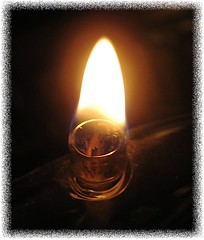Another year comes to a close, number 55 in the chronology of my life. 2008 has been good, however that’s not to say it has been without sadness, nor a presage for challenges on the horizon. The year has been good because life is a gift.
I appreciate this much more after the past three years, when I have personally experienced that decades of seeming stability can end at any moment. Death or serious illness or any number of life-changing events intrude, creating raw edges and the visceral knowledge that the continuity of life is unstable and will be punctuated by loss.
My mother would have celebrated her 89th birthday today, were she still alive. She made it to 86. Except for her last three months, she lived as she wanted: independent and fully engaged with life. I miss her, our daily e-mail chatter back and forth across the country and my occasional drop-in visits when I was traveling to the west coast. I am so grateful that she and I had her last summer to share, for both of us to prepare for her pending death. While challenging, that time was sacred and a wonderful gift.
The life lesson I am learning with each year’s passing is to savor each day, to recognize that it might be the last. This thought is beautifully expressed in the poem Otherwise, written by Jane Kenyon.
I got out of bed
on two strong legs.
It might have been
otherwise. I ate
cereal, sweet
milk, ripe, flawless
peach. It might
have been otherwise.
I took the dog uphill
to the birch wood.
All morning I did
the work I love.At noon I lay down
with my mate. It might
have been otherwise.
We ate dinner together
at a table with silver
candlesticks. It might
have been otherwise.
I slept in a bed
in a room with paintings
on the walls, and
planned another day
just like this day.
But one day, I know,
it will be otherwise.
 Send to Kindle
Send to Kindle


